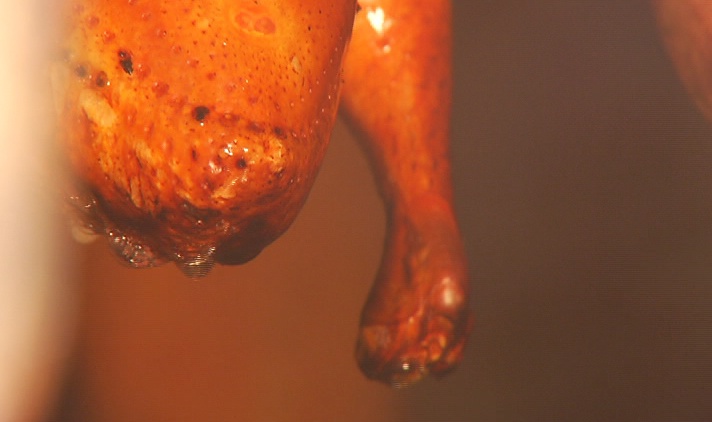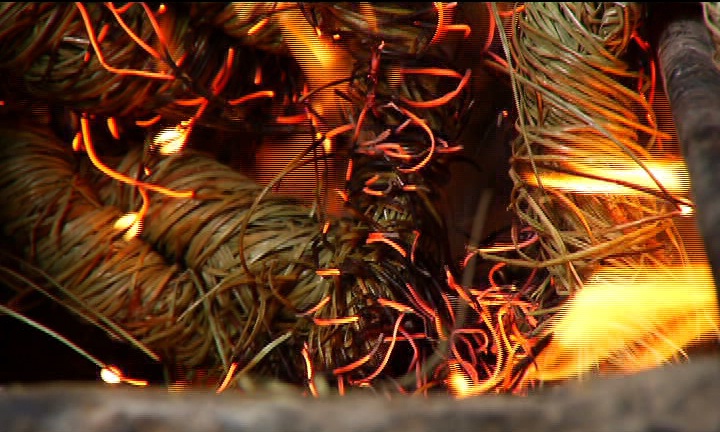Duck roasted by pine leaves
In Daying Jie, central Yunnan’s Yuxi city, there is a place named Huixi, which literally means confluence, as it is where nine rivers nearby meet and become one. The people of Huixi have a tradition of raising native ducks. Roasted normally by pine leaves as the fuel, the ducks here impress both local residents and tourists with their crispy skins as well as juicy and tender meat.
When pine leaves meet native ducks
Daying Jie, known as the “First Village of Yunnan”, is a renowned tourist destination. As local tourism flourishes, the number of restaurants specializing in roasted ducks has also increased. And popular ones at present include Zuo Guohong Duck and Lao Guo Duck.

Technically speaking, roasted duck of Daying Jie is a localized version of famed Peking duck which accommodates Yunnan’s culinary culture. The differences between the two encompass their ways of roasting and the selection of fuel. Instead of using an open hanging roast oven, close-oven technique has been applied in Daying Jie to better control the heat. In addition, traditional fuels like wood have been replaced by dried pine leaves collected locally in Yuxi.
To prepare authentic roasted duck of Daying Jie, one has to burn bundles of pine leaves in the oven until smoke comes out and the temperature inside hits 60 to 70℃. Then, it is the time to hang ducks (normally 12 to 14 each time) on meat hooks and suspend them from oven racks to roast. It is worth mentioning that ducks need to be turned around every 7 to 8 minutes to ensure that each of them is cooked evenly.

Such ducks roasted by pine leaves as the fuel are particularly characterized by their crispy skins, juicy and tender meat, and of course, a unique aroma that other roasted ducks have never contained.
Making ducks better than the day before
Among all roasted duck restaurants in Daying Jie, Zhou Guohong is the only one named after its owner. “I’m confident that I can not only cook delicious ducks, but preserve the traditional roasting techniques,” says Zhou, with customers flocking to his restaurant from the behind.
Zhou Guohong, who is in his 50s now, has been learning how to prepare roasted duck since the age of 16. Over the past three decades, he has been doing just one thing: making ducks better than the day before.
Making roasted duck might seem to be easy, but it involves several steps from slaughtering to soaking, from glazing to roasting, and each of them requires specific techniques. Zhou has invented a method to combine the steps of soaking and glazing together by adding honey into the boiling water directly. After a quick soaking of 20 seconds, ducks need to be lifted up immediately and left in a cool and ventilated place for air drying.

As a chef with more than 30 years of experience, Zhou is even able to tell whether ducks are overcooked or not by listening to the sizzling sound coming out from the oven.
Today, the Zhou Guohong Roasted Duck Restaurant has become one of the most popular dining places in Daying Jie. But Zhou is clearer than anyone else that no steps can be skipped while preparing his roasted ducks. Otherwise, the taste would not be the same.
“I have always been taught that no matter what I do, I have to give it 100% care. And that is the only way to keep the taste as it is forever,” says he.
Reporting by Liu Yun, Yang Xiao and Nie Xianghong; Trans-editing by Wang Jingzhong